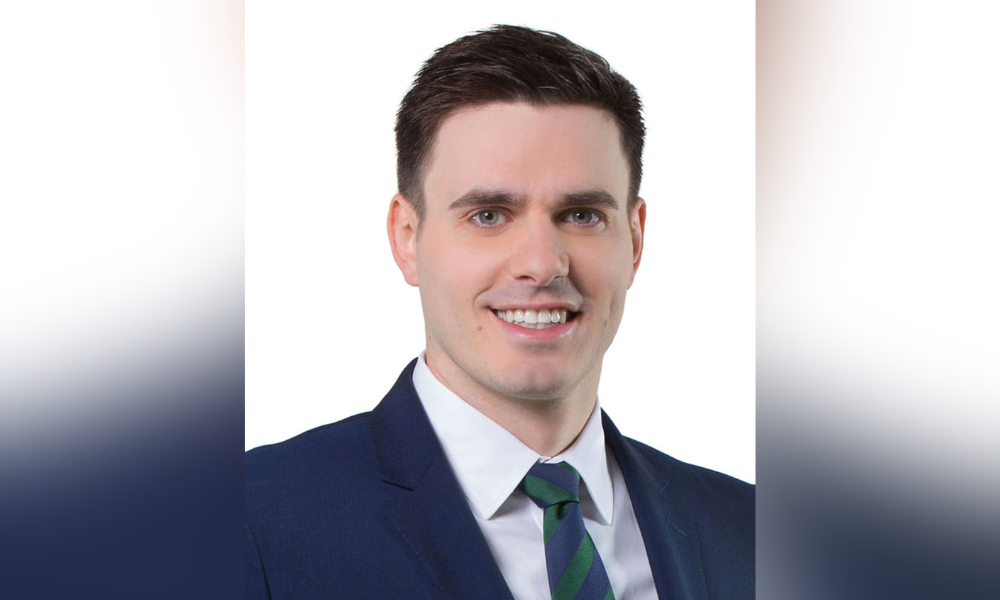
Decisions starting to grapple with latest changes to SABS legislation: McLeish Orlando's Joseph Cescon

This article was produced in partnership with McLeish Orlando LLP.
Mallory Hendry of Canadian Lawyer sat down with Joseph Cescon, partner at McLeish Orlando, to discuss a recent decision out of the LAT.
A recent decision out of the Licence Appeal Tribunal (LAT) made several procedural decisions with respect to determination of catastrophic impairment under the GOS and GOS-E, and Joseph Cescon says there are important practice points to be gleaned from them.
“What we’re seeing now are decisions based on the latest changes in the Statutory Accident Benefits Schedule (SABS) legislation, so these are unique decisions,” says Cescon, partner at McLeish Orlando LLP. “It's interesting to see how these new criteria are being applied at the LAT.”
The applicant, Hilded Abdi, suffered a mild traumatic brain injury, among other injuries, in a 2017 collision. Abdi received statutory accident benefits from the respondent, TD Insurance Company, but later applied for a designation of catastrophic impairment. In Abdi v. TD General Insurance Company, the LAT considered whether the applicant sustained a catastrophic impairment as defined under the SABS. Section 3.1(1), criterion 4(ii) of the SABS states that for a traumatic brain injury to be deemed catastrophic, the injured party must receive a rating of Upper or Lower Severe Disability six months or more post-collision or a Lower Moderate Disability one year or more post-collision, as assessed by the Glasgow Outcome Scale (GOS) and the Extended Glasgow Outcome Scale (GOS-E).
The LAT found Abdi did not meet the criteria for catastrophic impairment and denied the application, which was upheld in the subsequent reconsideration decision. The reasoning for the denial provided insight into the LAT’s role in determining the GOS-E, the importance of the timing of the GOS-E, and the role of psychological and physical injury in the GOS-E, points that Cescon explores in depth in a recent blog post.
For Cescon, the two most important takeaways are the timing as to when an assessment is going to apply and the importance of having the occupational therapist, who would typically administer the test, be supervised by a physician. For the first takeaway, “much has been made” about whether adjudicators are to apply the criteria as of the time of the initial assessment or at the time that the issue is before them, which could be years later. In Abdi, the applicant argued the appropriate time for the LAT to determine impairment under the GOS-E is at the time of the initial assessment, but the LAT found a flexible approach to timing must be taken.
“There’s a lot of important guidance in Abdi in terms of when the adjudicator will apply the results of an assessment at the time of the arbitration,” Cescon says. “Just because the assessments didn’t happen contemporaneously – for example the applicant’s GOS-E was done at the one-year mark but you don’t have the insurer’s done for another six months – doesn’t mean there will be no weight attributed to the insurer’s GOS-E rating. However, the LAT did note that an assessment carried out more than a year after the collision may be of limited value.”
As for the second takeaway, Cescon says it’s “not necessarily something we would have anticipated the LAT to hang its hat on so much in terms of this decision” but it’s important from a procedural standpoint. While Abdi is one decision and the LAT doesn’t necessarily follow precedent, “if future decisions interpret the SABS in the same way you’ll have a big problem if the OT hasn’t administered the GOS-E in conjunction with a physician.”
Despite the fact OTs have the expertise to conduct these assessments, the LAT didn’t express a willingness to interpret the data that would be collected without the guidance of a physician. Going forward, McLeish Orlando’s practice point will be to ensure if there’s going to be an application on the basis of GOS-E pursuant to the criteria, the firm meets the requirement expressed in Abdi by retaining an expert physician to direct the OT administering the test.
“That’s something we’re actively looking at to make sure it’s not a hurdle we have to overcome if we have a decision that goes to the LAT,” Cescon adds.
While it’s interesting that in Abdi the LAT was prepared to be flexible in terms of the timing of the application of the GOS-E yet weren’t prepared to be flexible where the GOS-E hadn’t been done by or at the direction of a physician, Cescon says either way this should be interpreted as “more of a limiting decision to the plaintiff’s bar because of the distinctions made in terms of the timing and the limitations with respect to how the GOS-E was conducted in the first place.”
Joseph is a partner of McLeish Orlando Lawyers and has dedicated his practice exclusively to working for injured clients and their families. He has handled a wide variety of personal injury cases, for people of all ages, and has the experience and dedication required to achieve a successful outcome, no matter how complex the case. A passionate advocate, Joseph strives to assist his clients in their recovery and in the pursuit of their goals.